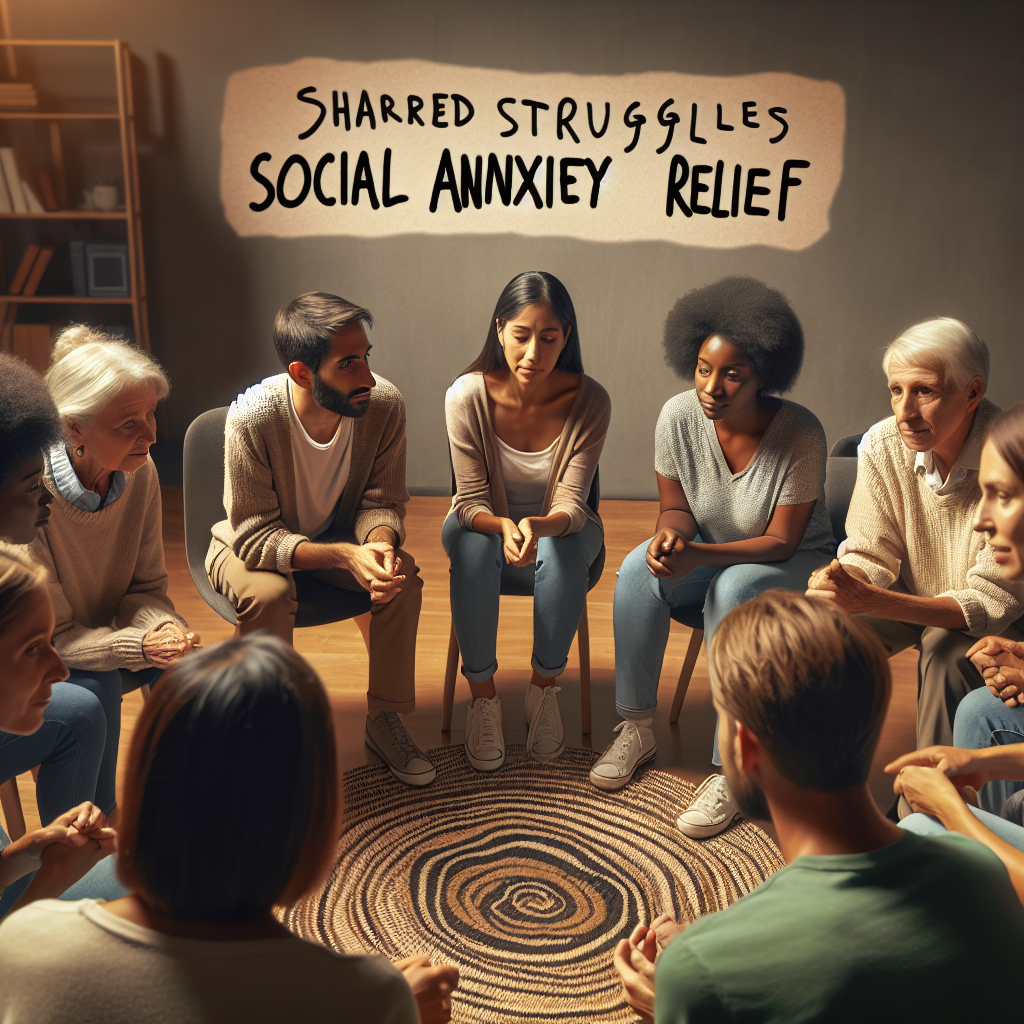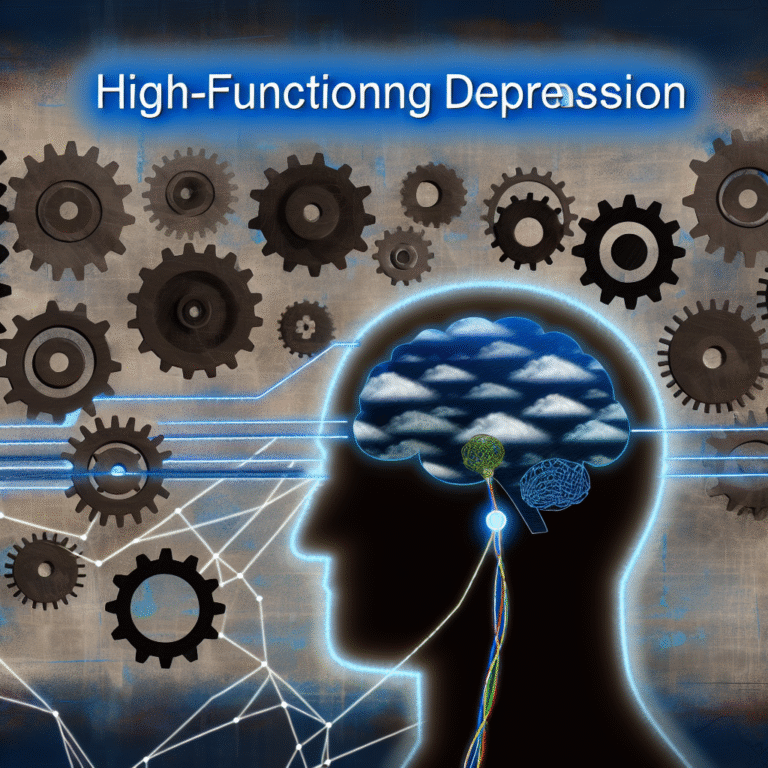
Shared Struggles: The Proven Effectiveness of Group Therapy for Social Anxiety Relief
Introduction
Imagine standing before a crowd, heart pounding, palms sweaty, and words hitching in your throat. For many people grappling with social anxiety, this scenario is all too familiar. Yet, what if the key to overcoming such challenges lies in shared struggles? In this in-depth exploration, we’ll delve into "Shared Struggles: The Effectiveness of Group Therapy for Social Anxiety Relief," illustrating how connecting with others who face similar fears can pave the path toward healing and empowerment.
Social anxiety is more than just shyness; it’s a debilitating condition that can hinder your ability to engage in everyday activities. As we explore the profound benefits of group therapy, we will discover not only the mechanics behind it but also real-world examples of how shared experiences foster resilience and recovery.
Understanding Social Anxiety
Social anxiety affects millions worldwide, characterized by intense fear of social situations and overwhelming self-consciousness. According to the Anxiety and Depression Association of America, approximately 15 million adults in the U.S. experience social anxiety, which often starts in childhood or adolescence and can persist into adulthood.
Key Symptoms of Social Anxiety
- Excessive Worry: Constantly fearing judgment or embarrassment during social interactions.
- Physical Symptoms: Rapid heartbeat, sweating, trembling, and nausea when faced with social situations.
- Avoidance Behaviors: Steering clear of situations that might trigger anxiety, which can lead to isolation.
Understanding these symptoms is vital to recognizing the importance of seeking help, and group therapy emerges as a pivotal support mechanism.
The Mechanism of Group Therapy
What is Group Therapy?
Group therapy involves a small group of individuals discussing their feelings and experiences related to a specific issue, facilitated by a trained therapist. This setting allows individuals to share their stories, gain diverse perspectives, and learn coping strategies in a safe environment.
How Group Therapy Works
While the format may vary, the core principles of group therapy generally include:
- Support: Members share similar struggles, fostering a sense of belonging.
- Feedback: Participants provide constructive feedback, which can help individuals see their situations from different angles.
- Skill Development: Therapists often introduce techniques and exercises designed to enhance social skills.
By focusing on "Shared Struggles: The Effectiveness of Group Therapy for Social Anxiety Relief," we uncover how this communal approach not only addresses individual fears but also cultivates a collective strength.
Illustrative Case Study: The College Student
Background: Emily, a college freshman, struggles to interact in her classes, fearing that peers will mock her contributions.
Group Therapy Experience: Joining a group for social anxiety relief, she learns that many face similar challenges. Through role-playing and supportive feedback, she gradually begins to voice her opinions and asks questions in class.
Outcome: Within a semester, Emily not only participates actively in discussions but also builds lasting friendships, demonstrating the transformative power of shared experiences.
The Benefits of Group Therapy for Social Anxiety
1. Creating a Safe Space
One of the most significant advantages of group therapy is the creation of a safe environment. Participants often feel more at ease discussing their fears and experiences among individuals who genuinely understand their dilemmas. When faced with shared struggles, people realize they are not alone, significantly reducing the stigma attached to social anxiety.
2. Developing Coping Strategies
Group therapy introduces various coping mechanisms, such as cognitive reframing, mindfulness techniques, and exposure exercises. Participants practice these skills in real-time, where they can receive immediate feedback and encouragement from the group.
3. Building Social Skills
Through structured discussions and activities, group therapy enhances social skills in a supportive setting. For example, role-playing exercises can help individuals practice conversing with peers, preparing them better for real-life interactions.
| Skill | Description | Group Activity |
|---|---|---|
| Active Listening | Engaging fully in conversations and responding appropriately | Small group discussions on designated topics |
| Expressing Emotions | Learning to articulate feelings and opinions | Sharing personal anecdotes within the group |
| Assertiveness | Practicing how to communicate needs and boundaries | Role-playing scenarios involving conflict resolution |
4. Gaining Perspective
Hearing others’ stories offers invaluable insight. Participants quickly discover that their fears are often exaggerated, allowing them to approach social situations with a new, more realistic perspective.
5. Long-term Community
Participants often form a supportive community that extends beyond therapy sessions. This lasting network becomes an invaluable resource for ongoing encouragement and connection.
Real-World Applications of Group Therapy
Case Study: The Workplace Support Group
Background: A support group for employees with social anxiety formed to address common difficulties encountered in team meetings and networking events.
Outcomes:
- Members exchanged techniques for navigating workplace dynamics.
- Increased confidence in speaking during meetings.
- Enhanced teamwork and collaboration in projects.
Through "Shared Struggles: The Effectiveness of Group Therapy for Social Anxiety Relief," participants experienced considerable professional growth while also benefiting from the emotional encouragement of their peers.
Case Study: The Online Group
Background: With the rise of teletherapy, an online group was established for individuals dealing with social anxiety, especially appealing during the pandemic.
Outcomes:
- Members learned to connect without the pressure of face-to-face interactions initially, building skills to transfer into real-world settings.
- They shared personal experiences of navigating social interactions while distanced.
This highlights how the adaptability of group therapy can provide immediate relief in unprecedented circumstances, proving to be effective even in virtual settings.
Potential Challenges
While the benefits of group therapy are significant, it’s essential to acknowledge potential challenges:
1. Group Dynamics
Each group is unique, and sometimes individuals may feel overshadowed or triggered by other participants’ experiences. It’s vital to cultivate a respectful and compassionate environment.
2. Resistance to Sharing
Not everyone is comfortable sharing personal experiences in a group setting, especially initially. Some may prefer one-on-one therapy before joining a group.
3. Finding the Right Group
Different therapeutic styles resonate with different individuals, so it might take time to find a group that aligns with one’s needs and personality.
Conclusion
"Shared Struggles: The Effectiveness of Group Therapy for Social Anxiety Relief" reveals the remarkable impact of collective healing. By participating in group therapy, individuals with social anxiety can learn, grow, and thrive in a supportive environment that transforms their experiences from isolating to empowering.
Through sharing our struggles and gaining insights from each other, we build not only the skills to manage anxiety but also a community that emboldens us to face our fears together. There is hope, strength, and transformation in vulnerability, and the journey to overcoming social anxiety is one that feels far less daunting when taken together.
FAQs
1. How long does group therapy for social anxiety typically last?
Group therapy sessions usually run for 60 to 90 minutes and are often held weekly. Programs may last from several weeks to several months, depending on the goals of the group.
2. Do I need to have a specific diagnosis to join a group therapy session?
While many participants have a formal diagnosis of social anxiety, most groups welcome anyone experiencing related challenges, such as excessive shyness or fear of public speaking.
3. Can I switch to individual therapy if group therapy isn’t right for me?
Absolutely! It’s important to find what works best for you. Many individuals benefit from a combination of both group and individual therapy.
4. Are online group therapy sessions as effective as in-person ones?
Research indicates that online group therapy can be equally effective, often providing a level of comfort that helps participants engage more freely.
5. How do I find a suitable group therapy session?
Consider checking with mental health professionals, therapy directories online, or local community centers. Many organizations now offer specialized groups for social anxiety.
Through shared struggles, group therapy facilitates healing in ways that individual settings may not, offering a powerful and compassionate route toward relief from social anxiety.















